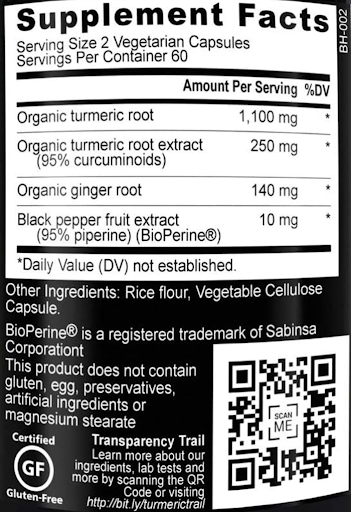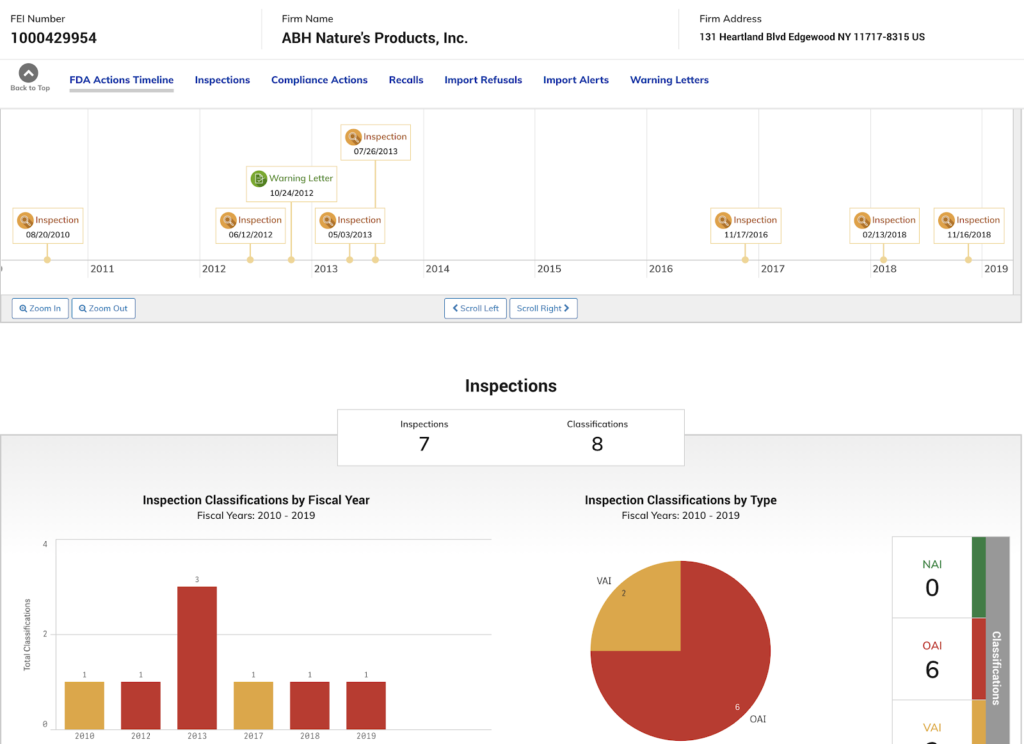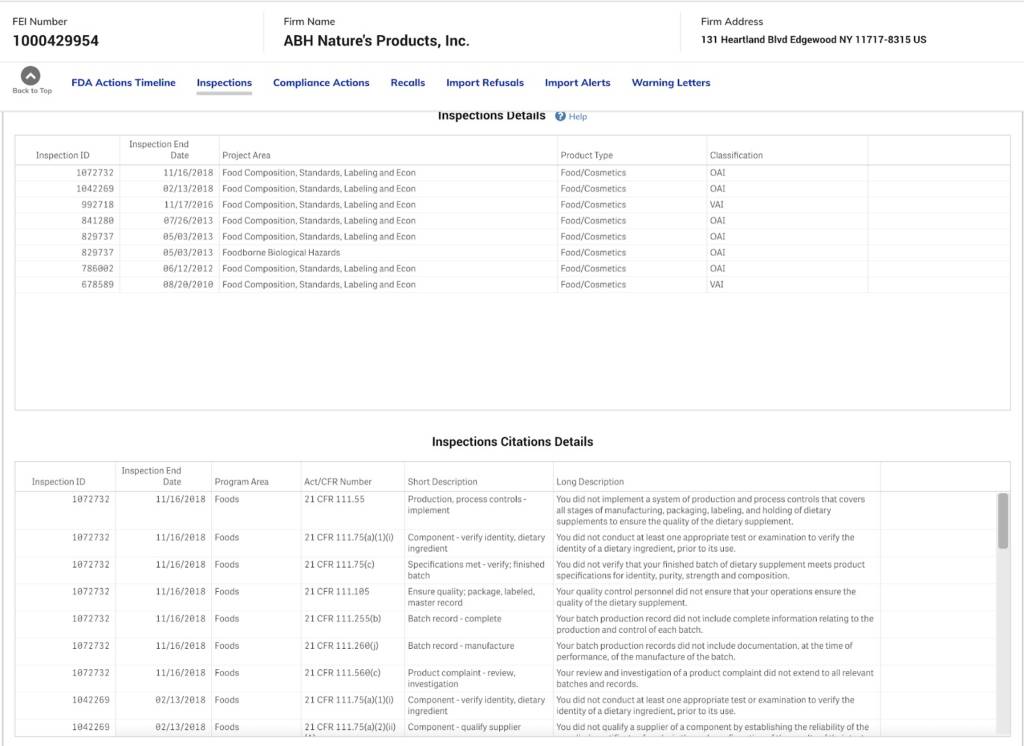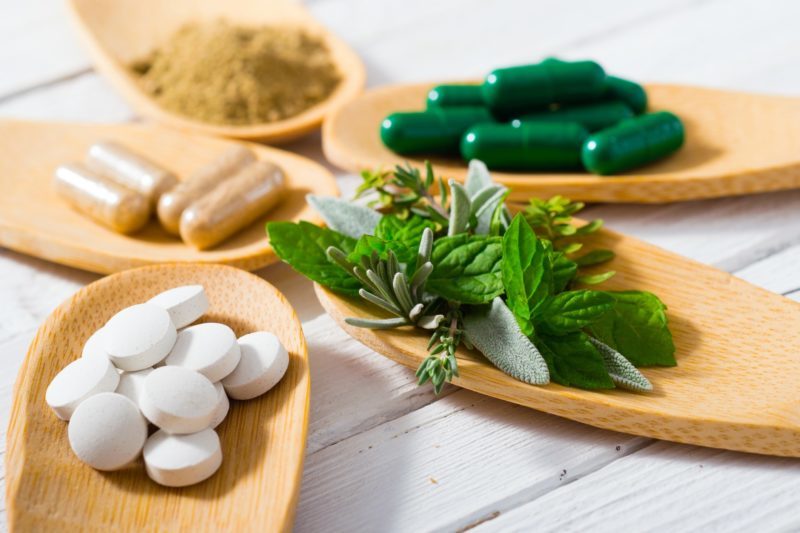It has come to our attention that ABH Pharma failed FDA inspections, and due to that fact, many brands are being asked by the FDA to recall any products that were co-packed at its facility.
…therefore…we would like to notify you of a recall that was initiated regarding a manufacturer that we have not utilized for several years, ABH Pharma, Inc. It has come to our attention that ABH Pharma failed FDA inspections, and as a result, are being asked by the FDA to recall all the products that were made at its facility…
therefore…
“If you still have this product, we recommend that you stop using it immediately and dispose of the item…”
For most store owners the answer is “never.” However, in 2019 Amazon sent thousands of messages to consumers warning them of widespread recalls and counterfeit products. To be fair, none of the products sold through, or by Amazon, has proven to be physically harmful to any consumer. However, if your answer to the above question was the same as Amazon’s action in 2019, your store would be significantly impacted.
In July of 2019, Amazon was forced by Proctor & Gamble to send a notice to all customers that recently purchased P&G’s probiotic product, Align. The Amazon-generated notice informed the recipient in the email that the product they recently purchased from third-party resellers was likely counterfeit.
In an email, a P&G spokesperson wrote:
We have analyzed samples of the products identified to be counterfeit, and our initial testing indicates the counterfeit product does not pose a safety hazard to consumers. The counterfeit products contain corn starch, gelatin and significantly lower amounts of active probiotics than authentic Align.
Prior to this incident with Proctor & Gamble, Amazon created Project Zero in an attempt to allow brands to monitor their products and proactively took down sites that it thought were selling counterfeit products. The main benefit to the brands is that they can achieve results without consulting Amazon first. The brand is required to provide evidence of the action’ and rationale. Additionally, the brand is required to have an accuracy level of at least 90% to maintain participation in the program. (Amazon Project Zero)
Before Project Zero, Amazon launched its Transparency App, which provided a method to underscore authenticity of a product. Transparency is an item-level tracing service where brands serialize each unit they manufacture with a unique code. Amazon then scans these codes and verifies the authenticity of the product before it reaches a customer. Customers can also scan the Transparency code via a mobile app to confirm authenticity and learn more about the product, such as usage instructions, ingredients, and expiration date.
Over 2000 brands, from Fortune 500 companies to startups, have enrolled their products in Transparency. One example of the Transparency App in the dietary supplement industry is Amazon’s brand, Elements. The Transparency App for Amazon Elements seems to be phasing out, though. Where there used to be information on the website indicating actual test results and an indication of which contract manufacturer produced the product, that is now gone. Country of origin of ingredients used to be prominently displayed. Currently, the identity of the contract manufacturer is listed as “AZ.” Neither Project Zero or the Transparency App seems to be satisfying Amazon, and the issue of counterfeiting does not seem to be addressed. There are other products on Amazon that still provide the “Transparency Trail.”

The contract manufacturer is an essential aspect of the quality of the product. Many consumers feel that where a product is made is as important as the ingredients used to make it. When Amazon sent out the original recall statement regarding ABH products, many consumers mistakenly thought the entire brand was being recalled. The reality was that often only one or a handful of products were manufactured by ABH. In some cases, no product was produced, and ABH offered only pilot projects or proposals. The Amazon recall notice did not specify the exact products in the recall as the recall notice itself did not disclose that information, either. Eventually, most of the confusion and delistings were corrected, but considerable angst and anger was felt by the brands impacted until the misunderstandings were resolved.
Many brands immediately distanced themselves from the recall by trying to explain precisely what products (if any) were manufactured by ABH. Some brands elected to take transparency into their own hands by listing the contract manufacturer used to make their product. One example, BeHerbal, provided the following:
Our Turmeric Curcumin and Ashwagandha are manufactured in a highly reputable manufacturer named Lief Organics in California. You can also follow the link or QR code listed in the back of the product label showing all the Quality & Safety Testing that has been done.
The remaining products such as the Ceylon Cinnamon, Moringa and others are manufactured at a highly reputable contract manufacturer in Florida named PLE.
Why is this information relevant, and what can be learned once you know the manufacturer? This allows you to proactively arm yourself with information and data to protect your customers and your store. One research tool is the FDA Data Dashboard (https://datadashboard.fda.gov/ora/index.htm). This tool allows the researcher to see the history between the FDA and the manufacturing entity.

You can see the details of the inspection and the nature of the findings:

It is important to note these are not all warning letters, and the results listed here were likely addressed. However, situations such as that with ABH indicate that in some cases, the same citations are consistently repeated, which for ABH ultimately led to the DOJ action and recall.
What can we learn and do with the information here?
-
Ask questions of your vendors to include transparency:
- What is the ingredient’s Country of Origin?
- Who is the Contract Manufacturer?
- May I see the actual test results of finished products?
- Let your customers know you are doing more than any e-commerce company to ensure the products carried in your store are thoroughly vetted.
Note: The views and opinions expressed here are those of the author(s) and contributor(s) and do not necessarily reflect those of the publisher and editors of WholeFoods Magazine.









